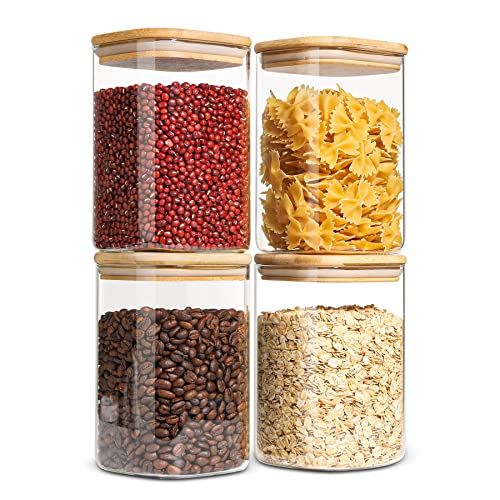When it comes to keeping your food fresh and ready to enjoy, glass food storage containers are a game changer. They’re not just about aesthetics; they offer a plethora of benefits, from being microwave-safe to being eco-friendly. But with so many options on the market, finding the perfect set to meet your culinary needs can be daunting. Fear not, fellow food preservers! We're here to guide you through the maze of choices and help you pinpoint the ideal glass food storage containers for your kitchen.
Lid Seal
The first thing to look at is the lid seal. A good seal is paramount when it comes to glass food storage containers. It keeps air out, freshness in, and prevents any spillage. Look for lids that have a silicone or rubber gasket, which are known for creating an airtight seal. Some containers even come with locking mechanisms that add an extra layer of security. Remember, a tight seal not only maintains the food's quality but also ensures that carrying your container to work or on picnics is mess-free.
Size and Shape
Next, let’s talk about size and shape. Glass food storage containers come in a variety of forms, from round to square and small to large. Your choice should be dependent on both the type of food you plan to store and the space you have available. If you’re meal-prepping, rectangular containers might be more space-efficient for stacking in your fridge. For leftover soup or stews, a set of round bowls could be more practical. It's also useful to have a range of sizes for different portions — large ones for big batches and smaller ones for dips or snacks.
Durability
Now, onto durability. Not all glass is created equal. You want containers made from high-quality, toughened glass that can withstand temperature changes and resist chipping or cracking. Borosilicate glass is a top choice for its thermal shock resistance, meaning it can go from freezer to microwave without batting an eyelid. But even tempered glass, which is more common, offers a good level of durability for everyday use. Opt for containers that promise longevity and won't leave you with shards in your salad.
Compatibility
Considering the compatibility of your glass food storage containers with appliances is crucial. In today’s kitchen, we expect our containers to do it all, from storing leftovers in the freezer to reheating them in the microwave. Glass containers are often oven-safe too, which is a huge plus for baking or roasting directly in the container. Ensure that the glass is labeled as microwave, freezer, and oven-safe. But keep in mind that the lids, especially if they have plastic components, may not tolerate high temperatures, so always check the manufacturer’s instructions.
Ease of Cleaning
Ease of cleaning is something you’ll thank yourself for considering. After all, who wants to spend their time scrubbing away at stubborn stains or trying to dislodge bits of food from awkward corners? Look for glass containers with smooth interiors and minimal ridges; these will be much easier to clean. Many glass containers and their lids are dishwasher safe, which adds to their convenience. However, watch out for lids with intricate seals that might harbor bacteria or food residues; they should be easy to dismantle for a thorough wash.
Eco-Friendliness
Last but not least, we can’t overlook eco-friendliness. Glass food storage containers are a greener choice compared to their plastic counterparts. They are endlessly recyclable, and they don’t leach chemicals into your food. Plus, high-quality glass lasts for years, reducing the need for replacements and minimizing waste. By opting for glass, you're investing in the health of the planet as well as the quality of your food.
By considering these key attributes, you’re well on your way to finding the best glass food storage containers that suit your lifestyle and culinary needs. Remember to weigh the pros and cons of each feature according to your personal preferences, and you'll be ready to tuck into fresh, delicious meals stored safely in your new containers. Bon appétit and happy storing!





